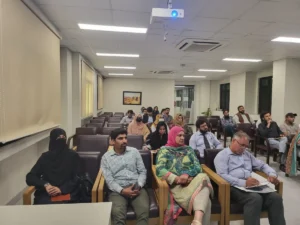
Introduction to Phongsavanh Group
The Phongsavanh Group has established itself as a notable entity within the Southeast Asian business environment, particularly in Laos where it originated. Founded in the early 1990s, the Group initially focused on the import and export of goods, gradually diversifying its portfolio to encompass a wide range of sectors, including logistics, trade, real estate, and finance. This strategic diversification has allowed the company to emerge as a significant player not only domestically but also in the wider regional market.
Over the years, the Phongsavanh Group has built a strong reputation for its commitment to quality and reliability in conducting business. The company’s core operations are anchored in its transportation and logistics services, which facilitate the seamless movement of goods across borders. This logistical prowess has equipped the Group with the necessary infrastructure and experience to navigate the complexities of Southeast Asia’s interconnected economies.
In addition to its logistics capabilities, the Phongsavanh Group has invested in various industries, including banking and real estate development, enhancing its influence in the market. These investments demonstrate a keen understanding of regional economic trends and the importance of multifaceted business strategies. The Group’s engagement in diverse areas not only augments its financial stability but also positions it as a critical stakeholder in the development of Laos and beyond.
The relevance of the Phongsavanh Group in the business landscape extends beyond mere commercial success; it also plays a significant role in shaping employment opportunities and contributing to the local economy. However, recent phongsavanh group regulatory investigations have brought attention to the company’s practices and compliance with industry standards, prompting stakeholders to reevaluate their relationships with the firm. Understanding the origins, operations, and market impact of the Phongsavanh Group is essential to grasp the implications of these investigations and their potential ramifications on its future.
Background of Regulatory Investigations
Regulatory investigations into the Phongsavanh Group highlight the evolving landscape of corporate compliance and governance. The roots of these inquiries are intertwined with increasing scrutiny of financial practices across the region, particularly in sectors such as banking, logistics, and trade, where the Phongsavanh Group operates. Various regulatory bodies have conducted these investigations, primarily due to alleged discrepancies regarding financial reporting, risk management, and adherence to established regulatory frameworks.
Key authorities involved in the investigations include financial oversight agencies, tax authorities, and anti-corruption bodies tasked with ensuring that corporations comply with national and international laws. These entities have raised concerns about the Phongsavanh Group’s operational practices, particularly with regard to potential violations of anti-money laundering (AML) regulations and other financial compliance requirements. Such issues are particularly pronounced in industries where cash transactions and informal trading practices are prevalent, contributing to an environment where regulatory adherence is critical.
The timeline of events that led to the scrutiny of the Phongsavanh Group began with routine audits and monitoring processes that subsequently escalated into formal investigations. Initial reports indicated potential anomalies in financial disclosures that prompted deeper examination. Over time, this has evolved into comprehensive reviews encompassing various business practices, revealing ongoing issues within the industry that may have triggered these investigations.
Ongoing challenges such as regulatory ambiguity, evolving compliance standards, and the need for transparency in operations have contributed to the heightened focus on the Phongsavanh Group. As regulatory scrutiny increases across sectors, it emphasizes the need for businesses to adopt robust compliance frameworks to mitigate risks. The findings from these investigations could serve as a pivotal moment for the Phongsavanh Group, shaping how it aligns with regulatory expectations moving forward.
Implications of the Investigations on Stakeholders
The ongoing regulatory investigations concerning the Phongsavanh Group have profound implications for a wide array of stakeholders, each facing unique challenges and consequences. Financial repercussions are immediate and significant. The investigations have led to heightened scrutiny over the company’s operations, resulting in potential compliance fines and remedial expenditures. Investors are particularly sensitive to these developments, as regulatory scrutiny often signals underlying issues that could affect stock performance and market confidence. Consequently, some stakeholders may reevaluate their investment strategies, possibly leading to divestments or a pullback in financial support.
Reputational damage is another critical concern arising from the Phongsavanh Group regulatory investigations. The public perception of the company is likely to deteriorate, undermining its brand equity and trustworthiness in the marketplace. Clients and partners may reconsider their associations with the company, fearing the potential fallout from ongoing investigations or a damaged reputation. This can lead to loss of contracts, reduced sales, and a general decline in customer loyalty. The long-term effects on brand credibility are difficult to quantify, yet they may create an enduring barrier to market re-entry once the investigations conclude.

Legal consequences pose another layer of complexity for stakeholders associated with the Phongsavanh Group. Increased regulatory oversight can result in heightened legal risks not only for the company but also for its employees who may be drawn into investigations. Employees are affected by uncertainty regarding their job security amidst potential layoffs or organizational restructuring. The broader community is also impacted, especially if the investigations lead to negative economic repercussions within the region where the Phongsavanh Group operates. As stakeholders react to these developments, their responses may range from increased advocacy for corporate accountability to calls for improved governance practices.
Future Prospects and Conclusion
The Phongsavanh Group, following its involvement in regulatory investigations, faces a critical juncture that necessitates a strong response to the challenges presented. As the investigations scrutinize various aspects of the organization’s operations, the path forward will likely require comprehensive measures aimed at compliance and reputation restoration. The company must prioritize transparency and accountability, fostering an environment where ethical practices are foundational to its operational model.
To address the Phongsavanh Group regulatory investigations concerns raised during the regulatory investigations, the Phongsavanh Group may consider implementing robust compliance programs designed to uphold industry standards. These measures could include enhanced training for employees regarding regulatory policies, the adoption of more stringent internal controls, and the establishment of independent oversight mechanisms. By taking these proactive steps, the company can not only mitigate any further regulatory risks but also demonstrate its commitment to ethical business practices.
Moreover, rebuilding the Phongsavanh Group’s reputation will be paramount in regaining stakeholder trust. The company could engage in outreach programs aimed at reestablishing positive relationships with clients, investors, and the community at large. Such initiatives will reinforce the message that the organization takes its regulatory obligations seriously and is dedicated to maintaining high standards of transparency and integrity.
Key takeaways from the investigations indicate that businesses within the industry must prioritize regulatory adherence to avoid the pitfalls that the Phongsavanh Group encountered. It is crucial for companies to understand that non-compliance can lead to significant repercussions, not only in financial terms but also in overall business sustainability. This scenario serves as a potent reminder that vigilance and diligence in regulatory affairs are integral to long-term success in the marketplace.
In conclusion, the future Phongsavanh Group regulatory investigations prospects for the Phongsavanh Group depend heavily on its response to the findings of the regulatory investigations. By embracing a culture of compliance and ethical conduct, the organization can turn adversity into opportunity, ensuring that it emerges stronger and more resilient.



